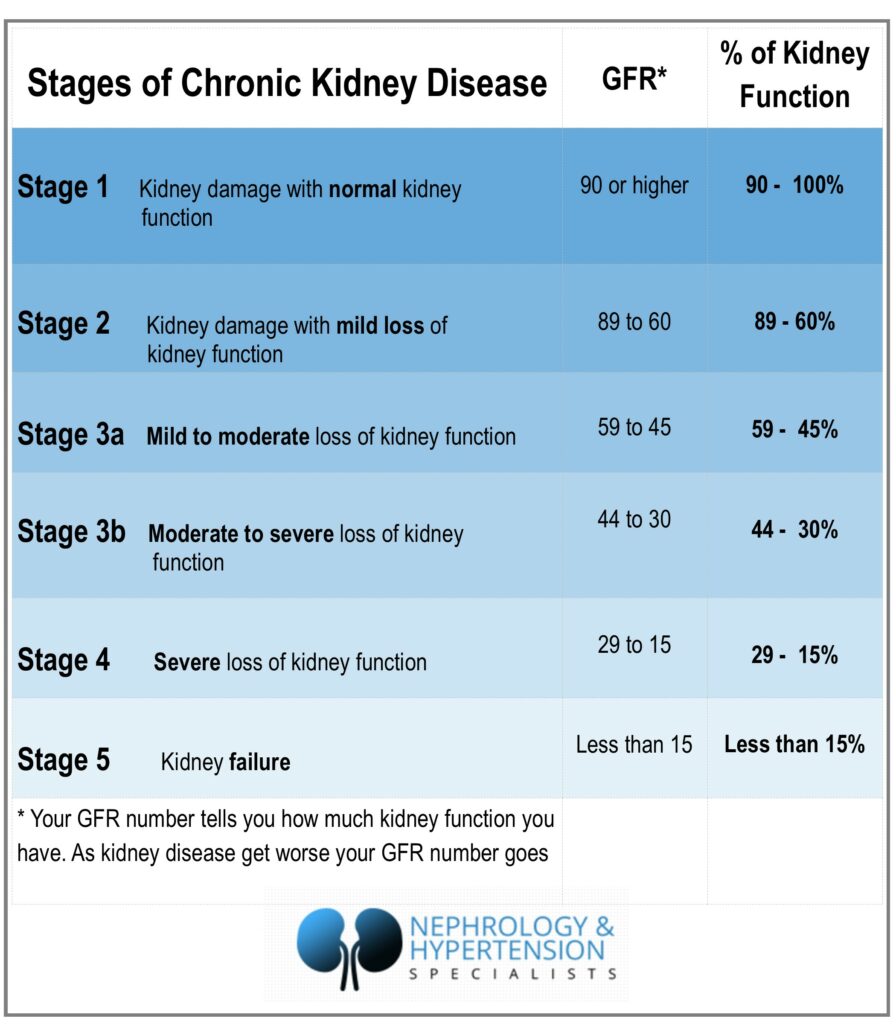Click to learn more about Understanding and Managing Chronic Kidney Disease
Chronic Kidney Disease (CKD) is a condition where there is documented damage to the kidney which may compromise the kidneys’ abilities to clean up toxic metabolites and maintain normal levels of electrolytes in your blood. This encompasses many different medical conditions that can result in CKD, such as hypertension and diabetes. CKD can lead to many different complications such as anemia, weak bones, malnutrition, nerve damage, high blood pressure and chronic heart failure. These problems may happen slowly over a long period of time or rapidly depending on the medical cause of CKD. Early detection and treatment can often keep CKD from getting worse. When kidney disease progresses, it may eventually lead to kidney failure and require dialysis or kidney transplant in order to maintain life.
What Causes CKD?
The two main causes of chronic kidney disease are diabetes and high blood pressure, which are responsible for up to two-thirds of the cases. Diabetes happens when your blood sugar is too high, causing damage to many organs in your body, including the kidneys and heart, as well as blood vessels, nerves and eyes. High blood pressure, or hypertension, occurs when the pressure of your blood against the walls of your blood vessels increases. If uncontrolled, or poorly controlled, high blood pressure can be a leading cause of heart attacks, strokes and chronic kidney disease. Also, chronic kidney disease can cause high blood pressure.
Other causes of chronic kidney disease can be related to autoimmune disease such as lupus and others. These require very specific therapies to treat. There are also genetic diseases that affect the kidney such as polycystic kidney disease (PCKD). There are therapies and diet changes that can help slow down the progression of these diseases.
—Source: The National Kidney Foundation

